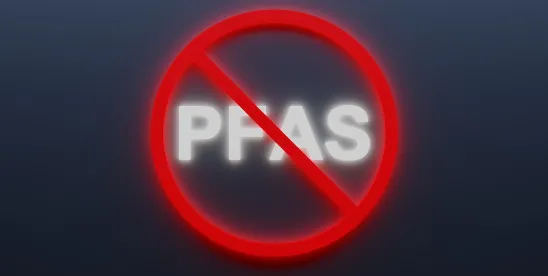European Union
- PFAS in consumer products – The European Commission reiterated its support for restricting PFAS in consumer products during a structured dialogue with the European Parliament’s ENVI Committee on 13 May 2025. Vice-President Stéphane Séjourné confirmed that the Commission is prioritising a consumer product-focused approach, citing the current lack of viable alternatives for industrial applications.
Following this statement, the NGO Corporate Europe Observatory (CEO) publicly criticised the Commission’s limited scope, warning that a focus primarily on consumer products fails to address industrial emissions and PFAS waste streams.
- Universal PFAS restriction – ECHA’s Committee for Socio-Economic Analysis (SEAC) will continue examining the proposed PFAS restriction at its June 2025 meeting, focusing on transport, medical devices, and lubricants.
- Chemicals Industry Action Plan and Omnibus Package – The European Commission will unveil its chemicals industry action plan on 2 July 2025, addressing competitiveness amid regulatory challenges. President von der Leyen reaffirmed the Commission’s commitment to aligning industrial competitiveness with consumer protection during an industry dialogue on 12 May. A broader Chemicals Industry Package, including potential REACH simplifications and PFAS clarifications, is planned for year-end.
- Classification of Trifluoroacetic Acid (TFA) as a reproductive toxicant – On 26 May 2025, the European Chemicals Agency (ECHA) launched a six-week public consultation on the proposed harmonised classification of trifluoroacetic acid (TFA) as a reproductive toxicant. The dossier, submitted by the German Federal Environment Agency, concluded that TFA meets criteria for reproductive toxicity under CLP. TFA, a PFAS-related substance and degradation product of pesticides and fluorinated gases, has demonstrated toxicological effects in animal models at concentrations above environmental levels. Classification may trigger specific labelling obligations and usage restrictions under REACH.
- Extension of PFOA exemption and ban on UV-328 under POPs Regulation – On 5 May 2025, the European Commission extended the exemption permitting the use of PFOA in firefighting foams until 3 December 2025, citing industry difficulties in compliance and detection issues. The exemption applies strictly to existing liquid fuel fire suppression systems for class B fires, in line with Stockholm Convention provisions.
- Water resilience and PFAS – Ahead of its official presentation by the Commission on 4 June 2025, a leak of the forthcoming Communication on the Strategy for Water Resilience was published by the media on 15 May 2025. Several stakeholders have already criticised the Commission’s draft strategy for its perceived emphasis on remediation rather than the prevention of PFAS pollution at the source. Eureau highlighted that only a swift and comprehensive ban on PFAS can effectively protect public health and condemned the shifting of pollution management costs onto water service providers. Earlier, on 7 May 2025, the European Parliament adopted a non-legislative report urging the Commission to adopt a more robust Water Resilience Strategy. The report advocates, among other measures, for broader PFAS restrictions and calls for a reassessment of the application of the polluter pays principle to the pharmaceutical industry under the Urban Wastewater Treatment Directive (UWWTD).
International / Global
- Global ban on Long-Chain Perfluorocarboxylic Acids (LC-PFCAs) – On 2 May 2025, Parties to the Stockholm Convention agreed to list LC-PFCAs under Annex A, instituting a global ban on their manufacture, use, import, and export, subject to limited exemptions. These exemptions include a five-year allowance for semiconductors used in replacement parts and continued use until 2041 or end-of-life for combustion engine vessel parts and out-of-production motor vehicles.






 />i
/>i
